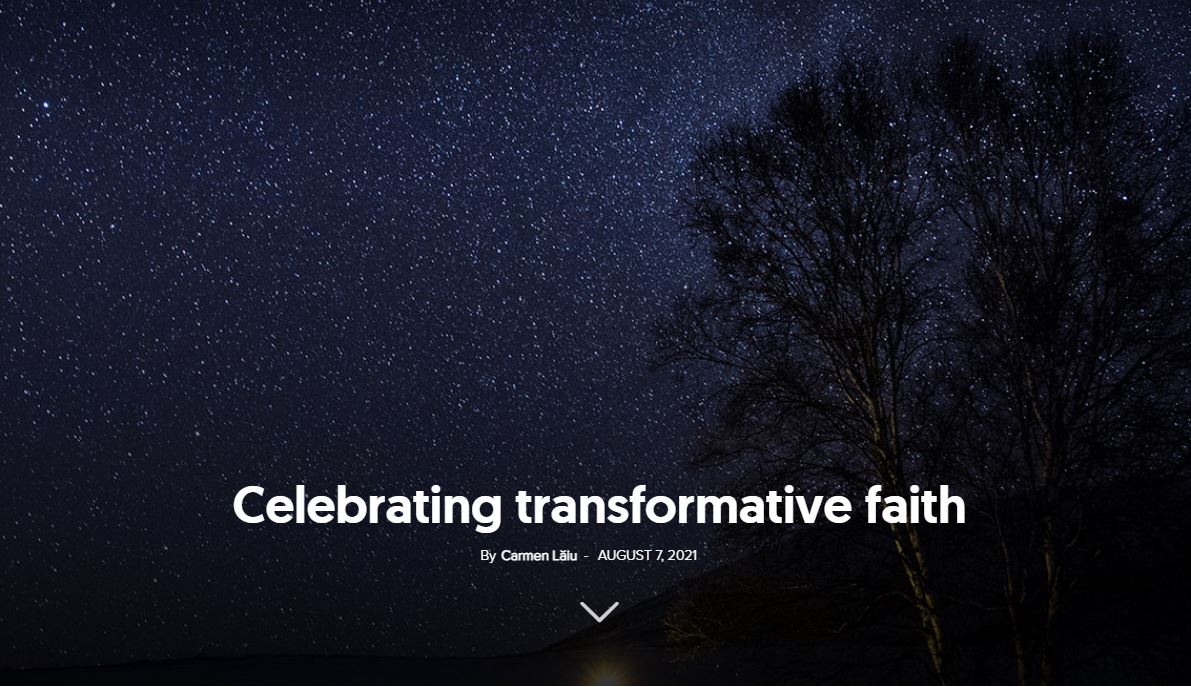I spent the end of my high school years in a Scandinavian school. In the Scandinavian educational system, teenagers are usually confronted with the great questions of mankind in the context of social disciplines.
They address the fairness of the administration of economic and political systems by exploring real-life examples such as:
- In 2012, 3,000 Indian children died daily from malnutrition-related diseases. Analysts estimated that 19 million tons of wheat risked being wasted due to poor storage. Two years earlier, the Supreme Court of India had recommended that the government freely distribute wheat to the poor while it was still edible, but the government did not comply with the recommendation[1].
- In 2016, American farmers dumped 162 million litres of milk due to overproduction. In the same country, 23 million people live in ”food deserts”—more than 10 kilometres away from a store or market where they can buy basic food that will allow them to eat healthfully[2].
Then, in order to educate critical thinking, the student is guided to ask questions based on these realities: What brought us here? Who can change anything about the above? What should be done?
Both examples show problems regarding food distribution in only two countries. We have not even touched upon the subjects of arms trade, drug trafficking, human or organ trafficking, genocide or the atrocities of world wars. The clash between the causes of these crises and the belief in a sovereign God updated the Epicurean trilemma in the form of a number of questions: How can a good God exist when the world is so bad? Is He all-powerful? Is He loving? Does He even exist?
I came to what seemed to be the only “way out”: giving up on God. Then I discovered what the abyss of a lack of faith means. The inner chaos that followed is hard to describe. The dominoes of the faith-filled life came tumbling down like in an earthquake, but not all of them fell. Some would not let themselves be shaken.
Trying to rewrite the equation of my own life and that of my family in the key of the divine absence, I continued to realize that “there were too many episodes in it that did not add up”[3] without the help of Someone, whom until then I had called God. Those episodes were the domino pieces that would not fall. I could not explain why these interventions, if they were divine, were so last minute, why they were so subtle, explicit, but also unexplainable, why they occurred in such improbable and fragile, yet necessary, causal chains.
These occurences were neither frequent nor rare, just as the stars in the evening sky that do not catch your eye, but which, once seen, cannot be ignored. If those were traces of God and if He was able intervene, why didn’t He do it with all His might to solve the problem of the human condition? The persistence of the absurd meant the question was unanswered. I debated a lot inside myself whether to ask God for an intervention, once more, to confirm or resolve my unbelief.
He wouldn’t do it anyway, because He hadn’t done anything else. I was also telling myself that it wouldn’t be ethical. Even if He existed, it would have been beneath Him to do such a thing as demonstrate to a mortal. Nevertheless, in the end, I asked Him for an intervention, from within the space of my solidly rational unbelief, because that’s where I felt that the stakes were high and no one else would be affected.
What followed was a surprise. Just like in my past experiences that could not be erased, the intervention was neither harsh nor abrupt. The difficult questions lingered for a long time. But right on top of the disbelief born out of them, I received—inexplicably at the time—a kind of “shock absorber”, as if all their strength had been taken away and I could once again see reality, free from the Epicurean prejudice.
Only then did I feel truly free to look at the world and see the divine interventions in it, as you see the light of the stars in the night sk. You see not only the darkness, but, if you are patient, you get to see first the stars, then the constellations, and then even the Milky Way.
The troubling questions no longer bothered me. Without my inner fear, after a long time, I understood how and why our world is not only a dystopian realm, but it also allows the light of hope and faith. Mankind designates a species, not an individual. We individually contribute either to its good or to its evil, but we could never replace it. The divine response to Abraham’s intercession for Sodom and Gomorrah to be spared shows that the world lives on thanks to the consistency of good and upright people who maintain their faithfulness towards God like Job (see Genesis 18:22-32, Job 1:8), by implicitly anchoring themselves in Him.
In World War II, Desmond Doss and Franz Hasel[4] saved many lives, unarmed, on the front. Ernest Gordon[5] went to war as an unbeliever, but the practical gestures of faith of his fellow prisoners Miller and Moore made him understand divine generosity and restored his trust and hope in his fellow man. After his release, Louis Zamperini suffered severe post-traumatic stress due to torture. But when he found out about Jesus Christ and understood the power of His forgiveness, he overcame his inner struggle and found the power to forgive his torturers.
You may also like:
The late Dianna Ortiz[6] was working on educating iliterate indigenous children in Guatemala, an activity for which she was targeted as an ideological opponent of the regime and was abducted. The horrors she was subjected to shook her soul so much that she lost the meaning of forgiveness—but she said she left it in God’s hands,[7] and following her fight for justice, she founded the only organization to abolish torture and support victims in the USA[8].
Nine-year-old Phan Thi Kim Phuc was burned with napalm, and the torment of the moment was caught on camera; people know her as the Napalm Girl. Despite this torment, she joined those who understood forgiveness and deliverance from her scars in the scars of Jesus—these are her words[9]. In the midst of the Rwandan genocide, Paul Rusesabagina chose to save all the Tutsis he could save in the Hôtel des Mille Collines he ran, even though he was part of the Hutu ethnic group.
Who are these people? A few stars on the moral vault of recent mankind, who have continued to cultivate the reflection of the divine, albeit through imperfect lives. The healthy human eye perceives light to the extent it opens. Astrophotography is done by prolonging the exposure of the sensor to starlight. Likewise, a too narrow slit through which you see the world generates incomplete results. Therefore the answer to Epicurus’ dilemma does not come in a human moment, but a divine one (see 2 Peter 3:8). With a more distant but careful perspective on the history of the world, the divine intentions to save humans will stand out.
In another article[10] I noted how history records a moral and qualitative distillation that overlaps and coincides with the spread of the knowledge of God’s revelation through the Holy Scripture and the acceptance of its message.
The aspiration of human rights has given mankind a trajectory that corrects the moral dissolution of the world, and the anchoring of these laws in the biblical idea that humans reflect the divine through creation gives credit to the divine revelation through its results[11]. The countries where this occurred have experienced a steady decline in violence, and the people of those places have made them more desirable for living.
The divine promise of salvation is thus fulfilled through the faith of the volunteers. Although the atrocities of martyrdom are not alleviated by the careful articulation of theodicy,[12] Revelation acknowledges the frustration of martyrs in the face of divine patience that delays retribution (see Revelation 6:10). However, in their distress, they do not abandon God, but, like Job and Dianna Ortiz, they address Him—although they do not fully understand Him, they know Him enough to trust Him.
Laurenţiu Nistor believes that if you have the patience to look at and research the work of divinity, you will not only come to believe in God, but you will also come to know Him.




















